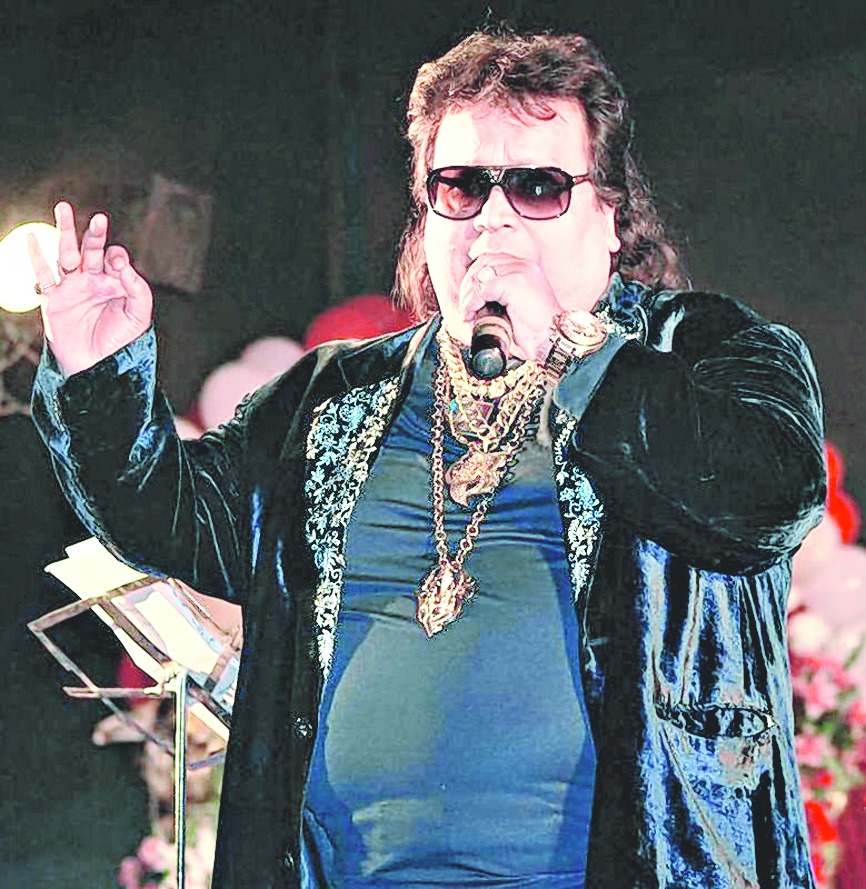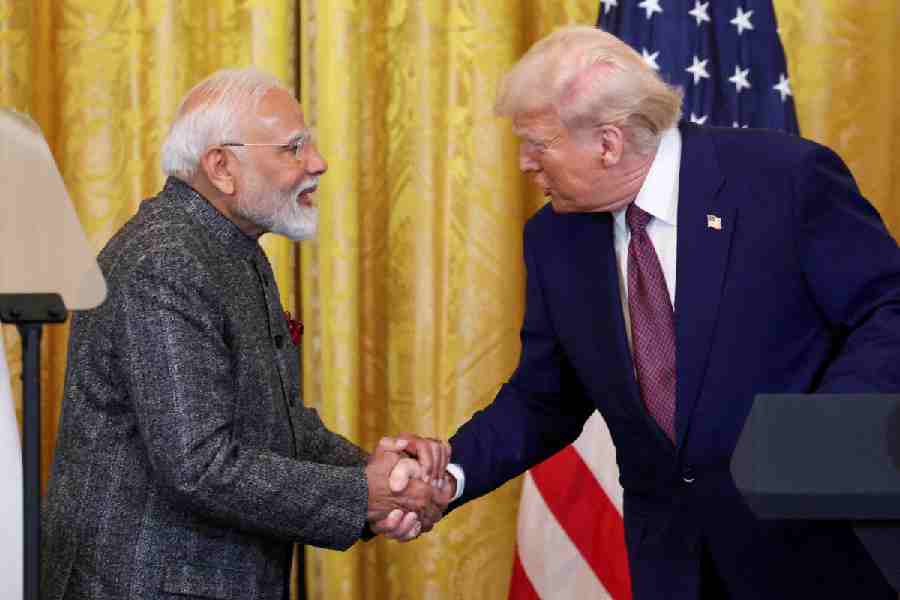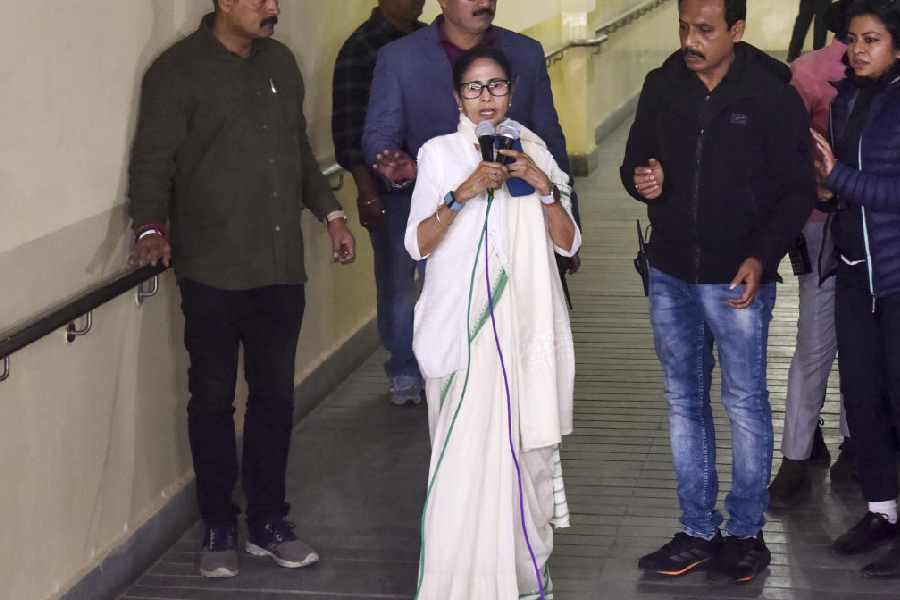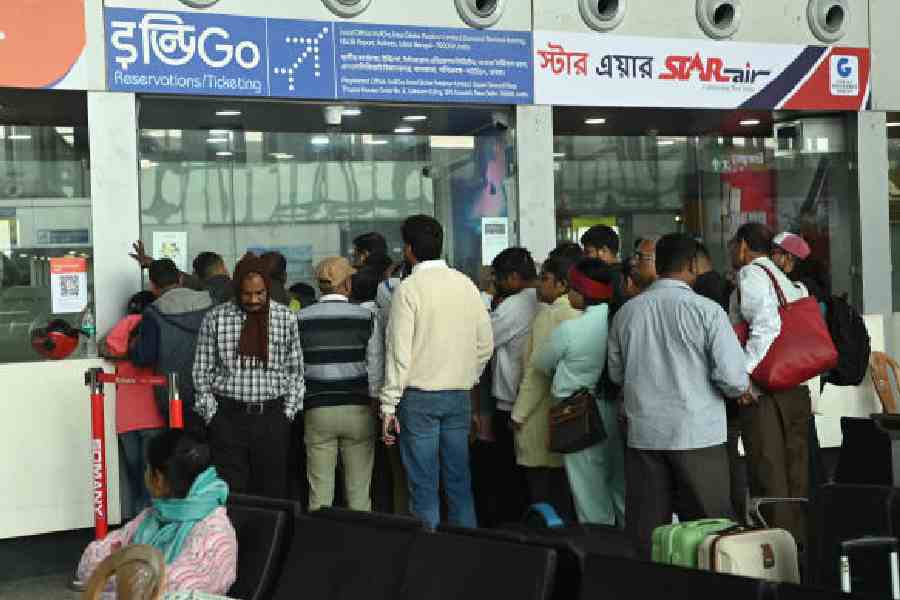
While listening to Hindi film music on your FM radio, you may suddenly stop in your tracks. Is that a Hindi or Bengali channel, you'd think. What are all these names - Bhattacharya, Moitra, Mukherjee, Ganguly and so on - doing in the midst of peppy Hindi songs and Bhangra rap that go balle balle?
Don't fret; you are on the right track. It's just that many of the composers of Hindi film songs today are from Bengal or are Bengalis. And the trend has come a full circle in Bollywood, which was once dominated by masters from the east.
Like them, many composers today have Bengali roots - from Jeet Ganguly, one of the music makers of the 2015 film Hamari Adhuri Kahani, and Shantanu Moitra, who made it big with Parineeta (2005), to Arko Pravo Mukherjee, known for his songs from Jism 2 (2012). Pritam Chakraborty is big in Bollywood, known for his hits in films such as Dhoom (2004). And then there is Krsna Solo of Tanu Weds Manu Returns (2015) and Aanjan Bhattacharya, who composed one of the biggest hits of 2015. A new generation of composers - Anupam Roy, Rana Mazumder, Raghab Chatterjee and others - is also slowly making its presence felt.

Bengalis and melodies were synonymous in Bollywood once. But that was seen as the golden age of Hindi filmdom, when music ruled. People still fondly recall the melodies of Sachin Dev Burman. Burman, of course, was from Tripura, but Bengalis have always claimed him and his son, Rahul, as their own. Hemanta Mukherjee infused lyrics with haunting melodies. Before them there was Anil Biswas, who composed many unforgettable ghazals, and earlier still, Pankaj Mullick.
Salil Chowdhury was known for his lilting folk music, choral harmonies and Western chords. Kishore Kumar composed memorable songs, as did others such as Kanu Roy and Mukul Roy. Bringing up the rear was Bappi Lahiri, who entered the league in the Eighties with his disco numbers. And the composer of The Dirty Picture (2011) is still going strong.
"Bappi Lahiri is history," says the man himself. "I have been in the music world for 45 years and have composed music for 645 films - the highest so far. In fact I composed music for 33 movies in one single year once," Lahiri adds.
The rise of the Bengalis in the earlier eras was also linked to the fact that Hindi cinema then was often Bengal-centric - with many stories adapted from Bengali films or literary works. "The movies had character sketches and subjects that were representative of Bengal's culture," says Shantanu Moitra. "But slowly things changed."
With a new generation of viewers, music took a new form - tomtomming the advent of disco. Many believe the beat-based music also pushed melody to the backseat.
Lahiri was dubbed Disco King with his film Disco Dancer (1982). "I started my disco era along with another Bengali superstar - Mithun Chakraborty. Ushaji [Uthup] sang the famous disco number Hari Om Hari. I worked for Amitabh Bachchan's movies such as Yaarana, Sharaabi, Aaj ka Arjun and many more," Lahiri recalls with pride. "I am the only one who survived the change. I have been in the music world from the beginning till date."

The new directors are, however, happy to adapt to the times. While Bengal may not be at the centre of Hindi films, the composers believe that their music is still being feted. The generation is talented and professional - traits that the new Bollywood appreciates. And their songs are varied, dealing with romantic melody, rhythm, folk music and Western tunes. "If a song touches your heart, it is a good composition," Jeet Ganguly sums up.
Though Arka Pravo Mukherjee believes it is just a coincidence that a great many Bengalis are composing music at the same time, he contends that there is a move towards regional music. "I know that directors such as Mahesh Bhatt are thinking of new things. He wants to work on interpretations of Rabindrasangeet," Mukherjee says.
In Bollywood's roller-coaster musical journey, a new trend was seen in the Nineties with the rise of young composer-duos such as Nadeem-Shravan, Jatin-Lalit, Nikhil-Vinay and so on. Some believe that Bengalis don't work well in pairs - one of the reasons they were marginalised in the years to come.
"Somehow, I feel that Bengalis have never had good luck when working in jodis," holds singer Shaan -- aka Shantanu Mukherjee - whose new band Superbia (with Gaurav Dasgupta and Roshan Balu) has been composing, apart from albums, songs for Hindi films. "Balu seems to be the glue or else it would be very difficult for Bengalis to work together," he laughs.
Some of the musicians - like Ganguly- are already well-known names in the Calcutta film industry. "I have brought back the trend where composers use the same tune for Bengali and Hindi songs, with just the lyrics changed," he says.
The new composers have to focus on new demands - which range from Punjabi folk to rap. "The Bangaliyana (Bengali essence) is missing today," rues Moitra. "Where is the soft, romantic melody that defined Bengali music? Now it is the drum and the sound of the rhythm that hit us hard on our face."
Singer Kumar Sanu underlines that composers today, bowing to viewers' demands, give more emphasis to northern or Western music styles. "Bhangra is good to hear but that is not what Bengali culture is all about," he sighs.
Nothing wrong with rhythms, the new composers counter. Aanjan Bhattacharya, who composes music with Meet Bros, points out that filmgoers want different kinds of music. "The music we make - disco or love tracks - is in demand now and you have to supply it. Whatever your artistic self might want to represent, you still have to cater to the young generation and the demand of the hour is dance numbers," says Bhattacharya, who has composed songs for a host of films, including Baby (2015). However, he also feels that when Bengali music directors compose a song, they leave a bit of their Bengali essence in it.
But his super-hit Chittiyan kalaiyan - the anthem of all Punjabi weddings, fat or anorexic - doesn't quite remind you of Bengal's red soil or palm trees. It's pure Punjab - yet popular across the length and breadth of the country.
The new RDs and Bappis are creating new tunes - and are happy with their work. "Melody has come back and we must remember that music knows no language," says Ganguly.










